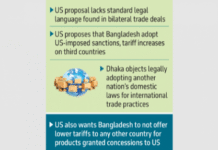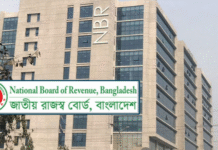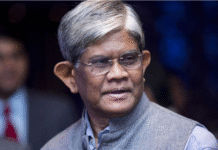Punish loan defaulters: FBCCI

The FBCCI yesterday reiterated its demand that the government punish wilful loan defaulters who were putting a great strain on the banking sector.
“The real defaulters should be punished. The justice should be done in a transparent manner,” said Shafiul Islam Mohiuddin, president of the Federation of Bangladesh Chambers of Commerce and Industry (FBCCI).
He was speaking at a press conference in the FBCCI’s office in Dhaka on the recent cut in bank interest rates.
Reitering his views at a June 9 press meet, he said trials of some bad bank borrowers were ongoing while some were facing Anti-Corruption Commission (ACC) but the FBCCI would not lobby to save any defaulter.
The FBCCI also suggested that banks continue to fund good borrowers, who defaulted on valid reasons such as sudden huge losses for political instability and a cut in production because of inadequate gas and electricity supply.
“Unfortunately, these good borrowers are also becoming victims along with the wilful defaulters,” the president of the apex trade body said.
Every bank should treat their borrowers according to their previous records, he said. “They should keep in mind that no injustice is done to the good clients.”
In the June 9 press meet, the FBCCI chief also called for exemplary punishment for bank defaulters. “It was no less than a robbery.”
Sometimes some small borrowers—owners of small and medium enterprises—have to go through tough legal processes after failing to repay loans of small amounts, although they are not wilful defaulters, Mohiuddin said.
“Now, every bank defaulter in the country has to face the trial where the political or any other kind of identity of the person does not add any value. It’s a very good culture.”
The banking sector has been going through a tough time in recent months. Banks’ non-performing loans (NPLs) hit Tk 88,589 crore as of March this year, which is 10.78 percent of the total outstanding loans.
The chronic inefficiency and mismanagement in state banks can now been seen in private banks too. Even some first-generation banks are in serious trouble now, including liquidity crisis.
The probes into some of the scams that have plagued BASIC and Farmers banks have not gone well to say the least. Even the High Court called in the ACC investigators of BASIC Bank scams last month and reprimanded them. “We have to cover our faces with black cloth in shame …,” an HC judge said. According to a Bangladesh Bank enquiry, around Tk 4,500 crore was siphoned out of BASIC Bank between 2009 and 2013 when Sheikh Abdul Hye Bacchu chaired the board of the bank.
“The current amount of NPL is a matter of concern for our economy. It helps to increase the interest rate. Whether it is a vicious cycle or not, BB knows it better,” Mohiuddin said in yesterday’s press meet.
“We want that our banking management not fall in any risk. We demanded an independent banking commission so that the actions are taken transparently.”
Banks are supposed to implement the cut in bank interest rates from July 1, he said. “However, we do not have any record on how many banks have reduced the interest rate to single digit until now although the order to cut the rate came from the prime minister.”
He also suggested that the government form a high-powered taskforce to realise the NPLs for which the bank interest rate rose abnormally. The bank interest rate in Bangladesh is higher compared to some other Asian countries, he said.
For instance, the interest rate in China is 4.3 percent, Singapore 5.3 percent, Vietnam 6.25 percent, Pakistan 8.2 percent, Thailand 7 percent, Nepal 7 percent, Indonesia 4.5 percent and Malaysia 4.8 percent, Mohiuddin said.
The reduced interest rate will encourage businesses to come up with more investment, create more jobs and boost economic development, he said.
Source: The Daily Star.









